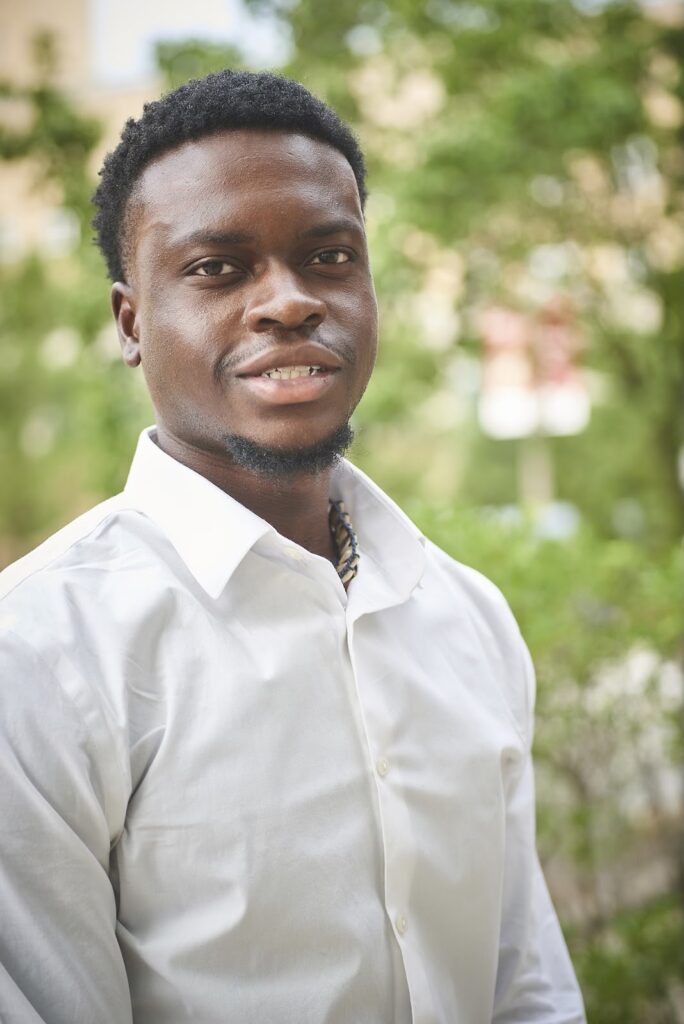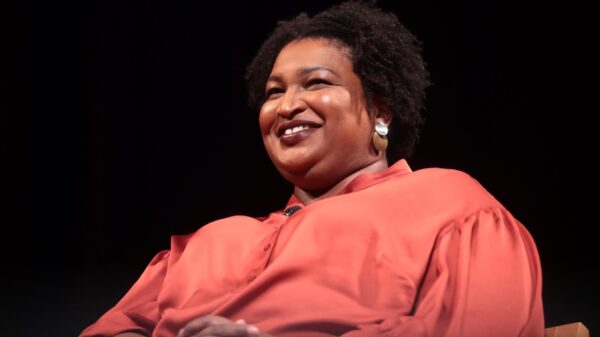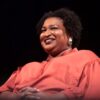
Growing up in Lagos, Nigeria, Temitope Creppy was always told by the adults in his life that attending college was the pathway to success. As the first in his family to attend college, the senior biology major never fully understood this concept.
Creppy, who currently lives in Chicago, said that growing up, college graduates were not only rare within his immediate family but also within the area he lived.
“I didn’t know how to be successful in college, so that was kind of scary,” he said. “But I feel that was pretty scary because I had no idea. I had no blueprint really, you know, or reference points to really maneuver.”
Lack of exposure is a recurrent complaint amongst first-generation college students at Howard.
A first-generation college student is someone who is enrolled in college but whose parents did not complete a 4-year college or university degree, according to the Center for First-Generation Student Success. According to Forbes, first-generation college students make up 56 percent of all postsecondary students in the U.S.
At Howard, first-generation students made up a little over 300 out of the 2,500 incoming freshman class, according to Kelechi C. Fluitt, executive director of student outreach and engagement. Howard University Institutional research, Howard’s public research dataset, indicates that as of this fall.
Creppy said that as a first-generation student going into college, he felt “unaware,” and that continuing-generation students seemingly had a “running start.”
He explained that things like filling out federal student aid applications, talking to professors or applying to summer internships seemed like common knowledge to continuing-generation students, but were learning curves for him.
“I didn’t know anything about like needing to have research or doing internships, or volunteer work. I just thought you just had to get good grades and, you know, work out for yourself,” Creppy said. “But it’s a lot more, it’s a lot more to it than that.”
For first-generation students, it can also be daunting to get involved with extracurriculars on campus.
Celine Thomas, a junior TV and film productions major, and theater arts minor from Brooklyn, New York, described feeling late to understanding and pursuing organizations at Howard because she wasn’t familiar with how to approach campus involvement.
“I wasn’t exposed to the different opportunities that was held in college. I didn’t know we could branch out, and do other stuff other than academics and work,” she said.
Similar to Creppy, Thomas pursued a college degree because it seemed like the only option to becoming successful and making connections after high school. However, she described having a slow start to getting acclimated to college.
Initially, beginning school as an undecided major, Thomas switched her major three times before finding the right fit for her. She described how not being able to turn to her parents for guidance on certain subjects partly contributed to her inability to commit.
“Definitely not having that ingrained in my family and having someone to talk to about ‘Hey, this is the different majors,’ and ‘Wait, what even is a major?’ like I didn’t even know what exactly to even pursue,” she said.
It wasn’t until Thomas was able to participate in various organizations and extracurriculars that she was really able to hone in on her interests.
She recalled attending a workshop after joining the organization, Spotlight Network, a television and media organization at Howard. Through the organization, she was introduced to the world of television and film production.
“They introduced me to how the entertainment industry is and how it is to actually pick up a camera and how to operate a camera,” she said. “And I was like, ‘Wow, this is pretty cool. I think this is what I want to do.’”
Other first-generation students described feeling more certain about their interests going into college, similarly viewing college as a stepping stone to accomplishing career goals.
From a young age, Jamar Bailey, a junior computer science major from Chicago, always found solace in education and described school as his “safe space” growing up.
“I found that one of the best ways to avoid a lot of the nuances and the issues that I had growing up as a child, education was kind of my safe space, so I always knew since I was a kid that I would like to pursue higher education,” he said.
Despite his natural love for school, Bailey said that he, similarly to other first-generation students, saw college as a necessary step to reaching his goals.
“I want to be around people who look like me, who are also pursuing that primordial hunger to succeed and evolve overall, really aggressive evolution is what I desire the most,” he said.
Although Bailey has built a solid support group at Howard he said he occasionally battles feelings of being alone.
“Being the first-generation student without having parents that have a lot of knowledge about college as such, you will this and this honestly goes for any student too, but you will feel some sense of loneliness at some point,” he said.
Between the absence of his father due to incarceration and his hardworking mother, who is a teacher’s assistant, Bailey admits that there weren’t many opportunities to discuss college.
These circumstances not only affected Bailey but also affected his older brother, who had to combat his own struggles.
“My brother had a lot of stress and pulls on him as a child since my father was in prison, so he had to kind of take that ‘man of the house’ role,” he said.
Bailey confessed that watching his family members face these hardships made him feel like a burden to them, and how this drives him to strive to be his best while in school.
“One of my biggest goals is I want my mother to retire from her current job and I want to be able to pull my own weight,” he said. “Because in a really dark sense, I just kind of felt like a burden because of how hard my mother works. So I felt that at least I could do is to make a lot of money.”
His motivation to provide a better life for his family also blossomed into a genuine desire to help elevate himself and others in the field of computer science. He wants to create a nonprofit aimed at teaching digital literacy.
While at Howard, Bailey had to combat loneliness, and as a first-generation student, he shared that it’s valuable to have a solid support system.
“It’s just important to have that stellar group who you can fight with and you can trust with until the very end, ” he said. “Because we cannot achieve a lot of our goals alone, or at the very least, doing it alone will never be as efficient.”
Numerous first-generation students stressed the importance of finding community in college and how crucial it was for their transition to higher education.
According to a survey conducted by the National College Health Assessment (NCHA), about 66 percent of college students reported feeling lonely during the last 12 months of college. The survey goes on to report that notably more female students reported feeling lonely than male students — 68.4 percent versus 58 percent.
Thomas shared her gratitude for her friends in school and the insight they provided her when trying to navigate college as a first-generation student.
“My peers, they helped me a lot to see the different ins and outs of college. Seeing it from a student standpoint and asking their parents for help since they do have experience, they could always give me advice,” she said. “Those little things really makes a difference in how my upcoming of college is.”
Fluitt shared that a challenge that she sees first-generation students face frequently is the inability to turn to close relatives for guidance.
“They’re literally charting new waters, having new experiences,” she said. “They don’t have the benefit of being able to call on people to say, ‘hey, what did you do in this scenario?’ Because they are the first.”
The Office of Student Affairs began to host monthly engagements for first-generation students to help them find their community and provide support for students.
“One of the things we wanted to do was to really support first-gen students’ matriculation here at Howard, and to provide them a space for them to build community with each other, but also with us,” Fluitt said.
Despite having little representation of college graduates, many of the first-generation students are hoping to be the stepping stone for others to pursue a college degree.
“I feel like now I am the blueprint or the reference point for like people you know, that’s coming after me,” Creepy said. “I feel like everything I do is, like I’m like the first person, like going in these uncharted territories where I’m just learning everything on the fly and doing everything on the fly.”
Copy edited by Alana Matthew







